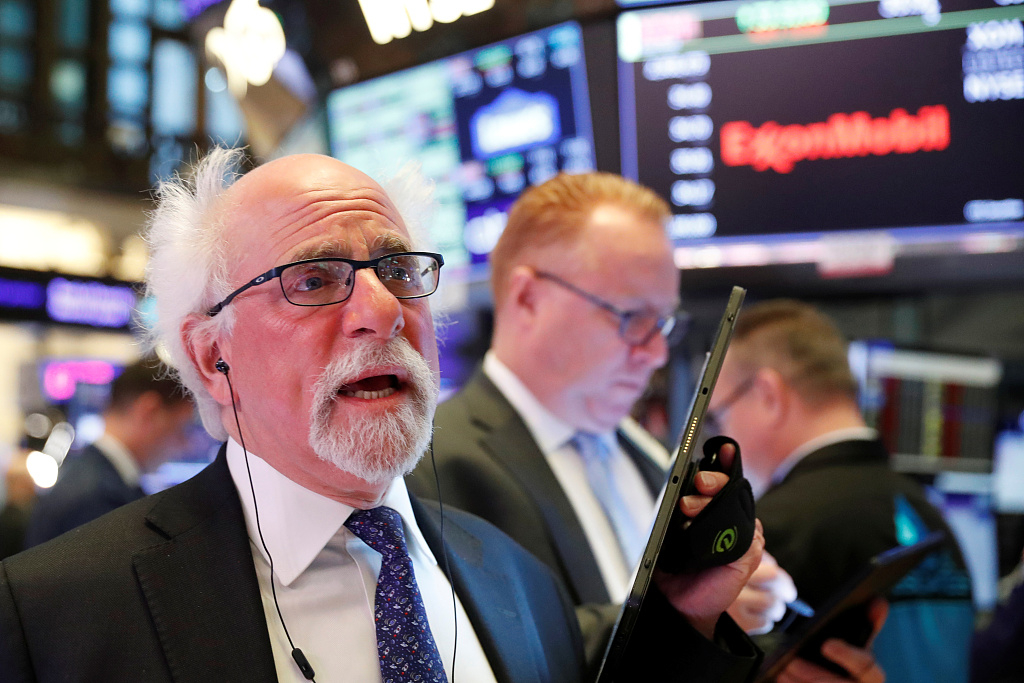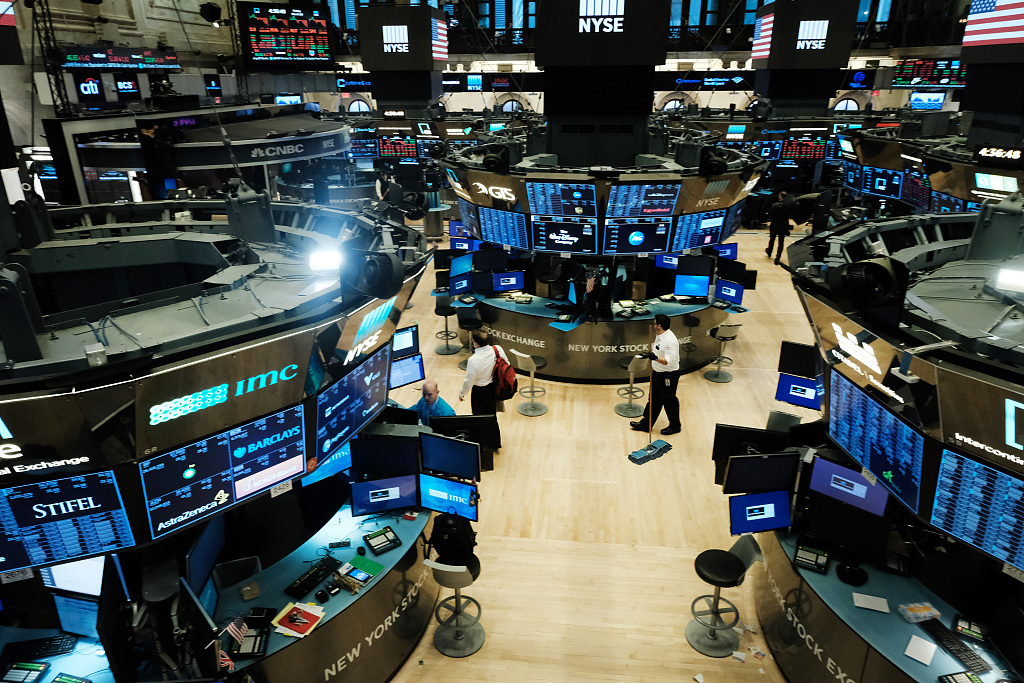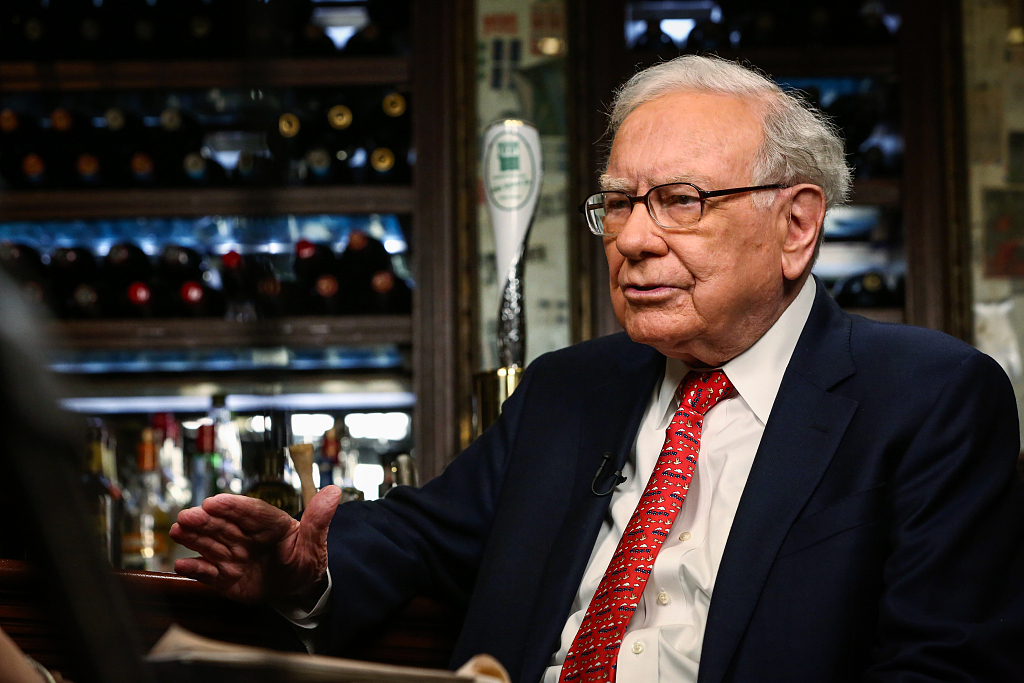The U.S. stock market has experienced coronavirus-induced panic in the past two weeks. Stock prices have been declining like a runaway train. Since the S&P 500 peaked on February 19, U.S. markets have entered a decline into bear territory. The Dow dropped over 3,000 points on March 16, marking its worst decline since 1987.

Traders work on the floor of the New York Stock Exchange shortly after the opening bell as trading is halted in New York, U.S., March 16, 2020. /VCG
Traders work on the floor of the New York Stock Exchange shortly after the opening bell as trading is halted in New York, U.S., March 16, 2020. /VCG
The New York Stock Exchange said that starting March 23, it will temporarily close its historic trading floor and fully move to electronic trading. The move came after two employees tested positive for coronavirus. No-one knows what will happen in the future, but some investors have already suffered a lot.

Custodial workers clean the floor of the New York Stock Exchange (NYSE) at the end of the day on March 20, 2020 in New York City. /VCG
Custodial workers clean the floor of the New York Stock Exchange (NYSE) at the end of the day on March 20, 2020 in New York City. /VCG
According to Market Insider, Warren Buffett's Berkshire Hathaway has probably suffered about 70 billion U.S. dollars in losses during the coronavirus-driven market sell off. Apple, Bank of America and Coca-Cola are Buffett's top three holdings, which have all performed poorly during the past few weeks. Among these, Bank of America is in an extremely hard situation due to the economic downturn, since banks must take on a lot of responsibility for easing monetary policy. The Federal Reserve also announced that it was cutting rates to zero, marking the second coronavirus-related emergency rate cut, which means that in the future, banks are not easily going to achieve post-earnings growth for the duration of the bear market.
Besides this, as travel restrictions and a fear of flying hammer demand, Berkshire's stake in Delta Air Lines also shrank in value by at least 40 percent.

Warren Buffett, chairman and chief executive officer of holding company Berkshire Hathaway, speaks during a Bloomberg Television interview in New York, U.S. /VCG
Warren Buffett, chairman and chief executive officer of holding company Berkshire Hathaway, speaks during a Bloomberg Television interview in New York, U.S. /VCG
During the past, Buffet has invested through the likes of the Black Monday decline in October 1987, the Internet bubble, the Great Recession and the subprime mortgag crisis. Over the past seven decades, Buffett has built up a net worth of around 80 billion U.S. dollars, and helped to create in excess of 400 billion U.S. dollars in value for shareholders of Berkshire Hathaway stock. He is good at translating short-term pain into long-term gain. His success came from researching a handful of sectors, picking out businesses with perceived competitive advantages and hanging on for the long haul.
The U.S. equity markets are also influenced by other factors such as the ongoing oil price war. As a famed investor, can Buffett continue his investment legend? We should note that before the stock market crashed, he warned that the U.S. stock market was ridiculously overvalued in an interview.

Warren Buffett returns a ball as Bill Gates looks on during a table tennis match. /VCG
Warren Buffett returns a ball as Bill Gates looks on during a table tennis match. /VCG
Buffett, one of the most famous investors of all time, is not immune to the downsides of the market. Big name investor Ray Dalio also said his hedge fund Bridgewater "didn't know how to navigate (the) coronavirus stock-market selloff and should have cut all risk but failed to react." Bloomberg also reported that Dalio's macro fund has lost 20 percent so far this year as of last Saturday. But 12 years ago, Ray Dalio's deft navigation of the financial crisis made him a legendary investor.
Doubtless, the global economy is facing the very real prospect of a recession on the back of coronavirus devastation. Investors should be prepared.